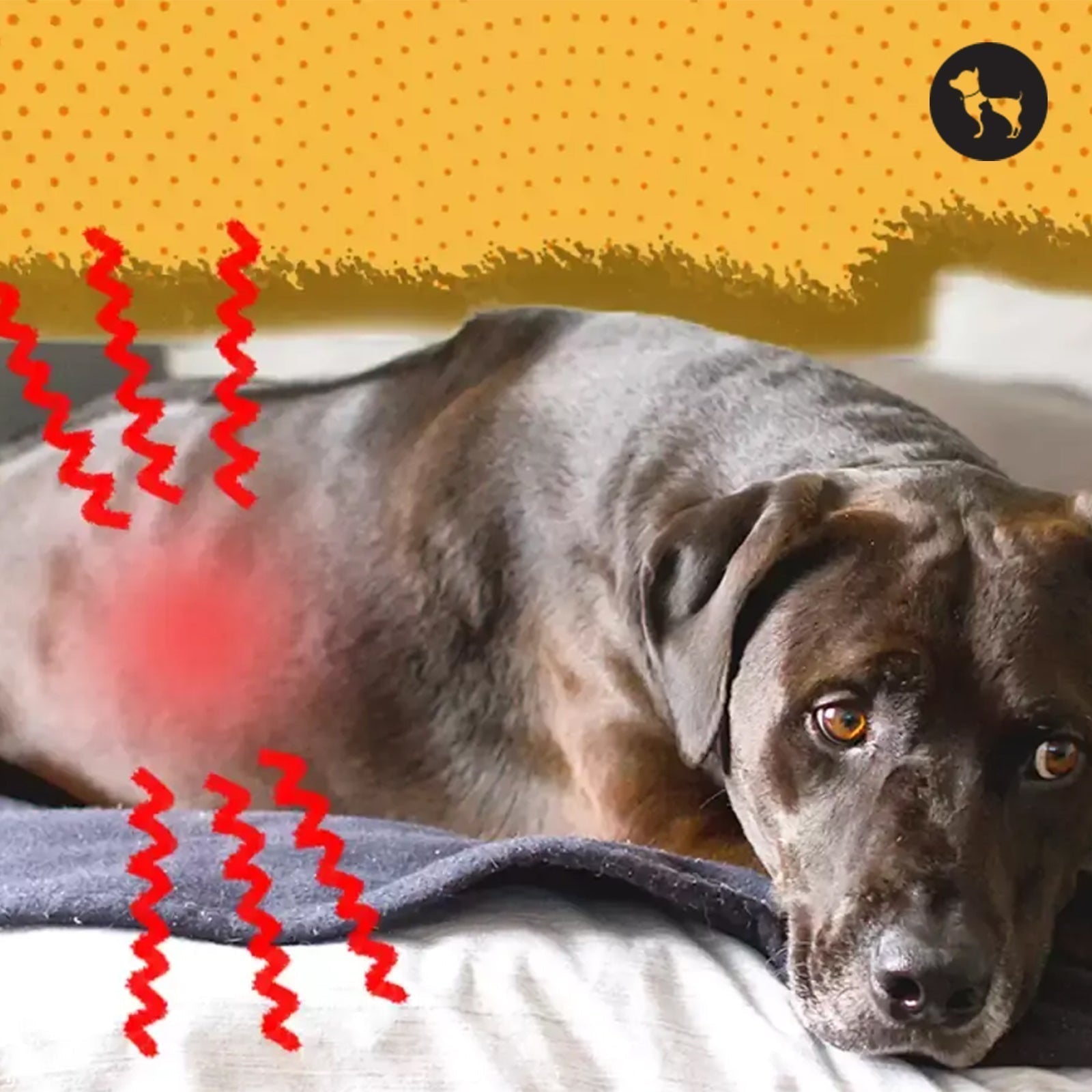
Chronic Kidney Disease (CKD) is one of the most common long-term health conditions seen in senior dogs, but it can affect younger dogs, too. The condition progresses slowly, which means early detection plays a huge role in improving your dog’s comfort, energy levels, and overall quality of life.
Understanding the early signs, common causes, and at-home basic care tips can help pet parents in India manage CKD with more clarity.
Your dog’s kidneys have an essential job - they filter waste from the bloodstream, balance fluids, regulate electrolytes, and support blood pressure. When kidney function gradually declines, the body can’t eliminate toxins effectively. This ongoing loss of function is known as Chronic Kidney Disease.
CKD is not usually reversible, but with early diagnosis and the right management plan, dogs can lead a comfortable and active life for years.

Here are some common early symptoms of chronic kidney disease in dogs:
Increased thirst and frequent urination
Loss of appetite or picky eating
Weight loss and reduced muscle mass
Bad breath with an ammonia-like smell
Lethargy and lower stamina
Vomiting or nausea

Chronic kidney disease can develop slowly over months or even years, and understanding what its contributing factors are can help you protect your dog’s long-term health. Explore some of the common causes below:
As dogs grow older, their kidneys naturally become less efficient. This gradual decline is the most frequent cause of CKD. Senior dogs (7 years and above) often experience reduced ability to filter waste, making them more vulnerable to chronic kidney problems over time.
Some breeds have a higher chance of developing kidney issues due to inherited tendencies. Breeds like Labradors, Cocker Spaniels, Shih Tzus, and German Shepherds are more prone to early or progressive kidney disease. For these dogs, routine kidney check-ups become especially important.
Chronic urinary tract infections or kidney infections can gradually damage kidney tissues. When infections go unnoticed or untreated for a long time, they can lead to scarring, which affects how efficiently the kidneys function.
Food plays a major role in kidney health. Diets that contain excessive salt, low-quality ingredients, or inadequate hydration support can place extra pressure on the kidneys. Over time, this added strain can contribute to chronic kidney issues, especially in dogs already at risk.
Many chemicals and seemingly harmless household items can be dangerous for dogs. Exposure to toxic plants, rodent poison, human medication, or contaminated water sources can lead to sudden kidney damage that later becomes chronic. Even small amounts of certain toxins can have long-term effects.
Some health issues can indirectly put stress on the kidneys. Conditions like diabetes, high blood pressure, autoimmune diseases, and even advanced dental infections can influence kidney function. When these diseases are left unmanaged, the kidneys must work harder, increasing the risk of CKD.
India’s intense summers can make dogs especially vulnerable to dehydration. When the body loses too much fluid, the kidneys don’t receive enough blood flow, causing strain. Repeated episodes of dehydration or heat stress over the years can gradually impact kidney health.
To confirm CKD, your veterinarian may suggest:
Blood tests (checking creatinine, BUN, SDMA)
Urinalysis (evaluating urine concentration and protein levels)
Ultrasound to check kidney size and structure
Blood pressure monitoring, since hypertension is common in CKD

Caring for a dog with CKD is all about consistency. While the condition can’t be reversed, the right routine can keep your dog stable, comfortable, and happy for years. Here’s how you can make your dog’s day-to-day life healthier and easier:
Renal-friendly food is the backbone of CKD care. Vets prefer diets that are low in phosphorus, moderate to low in sodium, and use high-quality, easily digestible protein. These formulas help reduce the workload on the kidneys and slow down the progression of the disease. You can choose veterinary renal diets or thoughtfully prepared low-phosphorus meals, your vet will guide you based on your dog’s stage.
Water becomes non-negotiable for CKD dogs. Since their kidneys can’t concentrate urine well, they lose more fluids and must drink more to stay balanced.
Keep multiple water bowls around the home
Add extra water to meals to boost intake
Include wet food in the diet as advised by your vet
During Indian summers, increase hydration efforts, as dehydration can worsen CKD quickly
Frequent check-ups, ideally every 2 to 3 months help monitor kidney function, blood pressure, and hydration levels. These visits allow your vet to adjust medication, update diet plans, and catch changes before they become serious. Early intervention keeps CKD stable for longer.
Dogs with CKD may need targeted medical support depending on their lab results. Common vet-prescribed additions include:
Phosphate binders to control phosphorus levels
Blood pressure medication to reduce kidney strain
Kidney-support supplements (omega-3s, probiotics, or renal powders) that aid gut health and reduce toxin buildup
Always stick to what your veterinarian prescribes. Avoid experimenting with over-the-counter supplements or home remedies as CKD requires precise management.
Light, consistent exercise helps keep your dog feeling good without tiring their kidneys. Choose:
Slow, relaxed walks
Gentle mental games
Short play sessions over long, exhausting ones
A calm, predictable home environment also helps CKD dogs maintain steady energy without unnecessary stress.
Even with the best care, CKD may change over time. Contact your vet promptly if you notice:
Vomiting or nausea
Sudden refusal to eat
Dramatic weight loss
Excessive fatigue or weakness
Increase in thirst or urination beyond usual levels
Living with a dog diagnosed with CKD can feel overwhelming in the beginning, but most dogs do incredibly well once their routine is adjusted. With steady care, mindful nutrition, and regular veterinary guidance, they continue to stay active, affectionate, and very much themselves. Small, consistent choices truly make the biggest difference.
While caring for your dog, if you prefer having all your pet essentials in one trusted place, HUFT makes it easy. We cover everything from food and treats to toys, wellness supplies, and grooming products, so you can build a routine that truly supports your dog’s comfort every day.